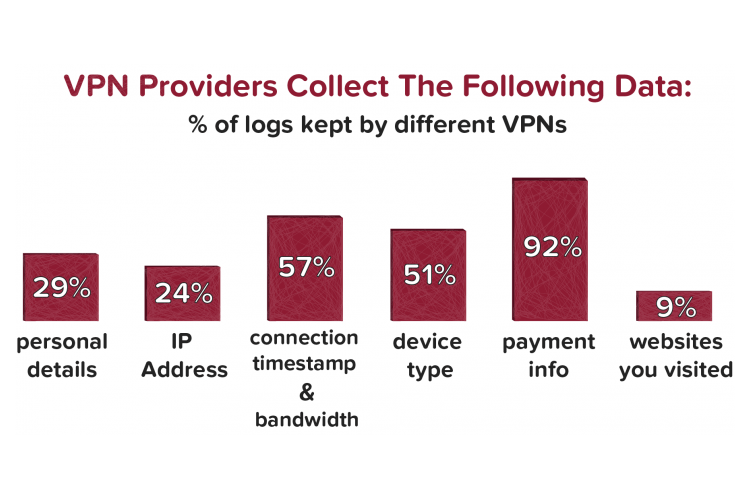The major point of using a VPN is to browse the web anonymously, safely and in private.
Using a VPN, users can change their location and IP, making them appear on other countries. VPNs are generally regarded as a more secure alternative to a regular ISP for anonymizing internet traffic and unblocking blocked websites.
However, many VPN users wrongly assume that with a VPN, no one has access to their data. Unfortunately, VPN provider, in place of ISP, do have access to users' data.
In an investigation into 115 of the world’s most popular VPN services, The Best VPN website revealed that many of VPNs aren't doing what they claim. It found that 26 of popular paid VPNs collect three or more important log files that could contain personal and identifying information.

These VPNs include:
- PureVPN.
- HideMyAss.
- HotSpot Shield.
- VPN Unlimited.
- VyprVPN.
- Astrill.
- ZoogVPN.
- Buffered.
- TigerVPN.
- Boleh VPN.
- Anonymizer.
- IPinator.
- Seed4.me.
- AnonVPN.
- FlyVPN.
- SunVPN.
- iPredator.
- HideIP VPN.
- VPN Gate.
- HolaVPN.
- Faceless.me.
- Betternet.
- Ace VPN.
- Flow VPN.
- Freedom-IP.
- IronSocket.
VPN services are popular because people are becoming more aware of their internet privacy. In a sense of anonymity, especially against the likes of Google and Facebook, the demand for VPN services almost doubled in every 5 years.
But not all VPNs are created equal.
The main reasons why VPNs sell data, are to cover server costs, create revenue, or just pure temptation.
For privacy-concerned individuals, they need to do some researches before trusting any third-parties with their browsing data. They can also use open-source VPNs, or academic experimented VPNs, which have no financial motivation or incentives.
Or, they can set their own VPN.